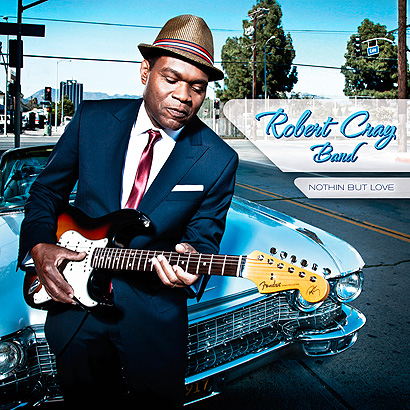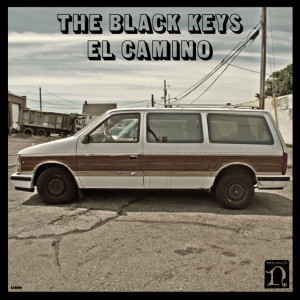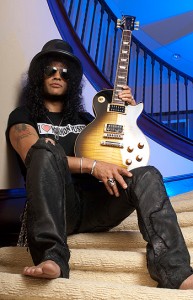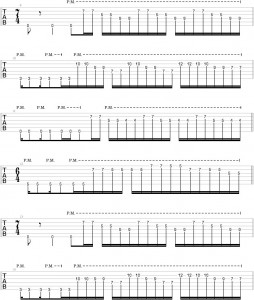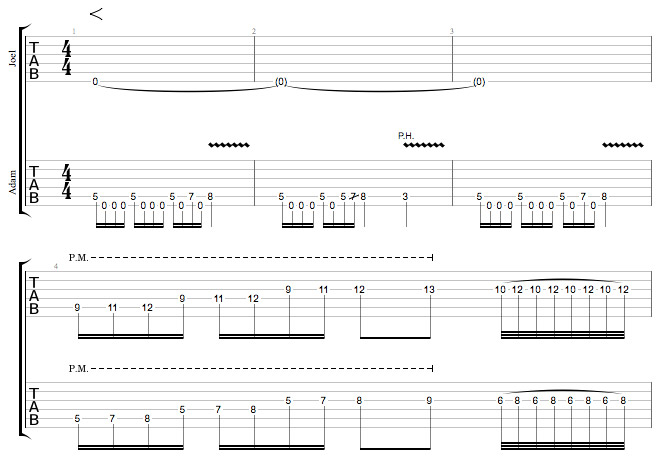When Muddy Waters sang ‘The Blues Had a Baby and They Named It Rock and Roll’ in 1977 it was a lesson to the youth of where this loud new sound had originated from just a scant couple decades ago. Few, however, took to mind the parent within the metaphor. Young as rock and roll still may have been, what kind of elder would the blues grow to be as its child went through the growing pains of punk, hair metal, and grunge?
The blues has come a long way from its rural roots, in turn putting its myriad of acolytes in a curious position. Militant purists might decry any sound scrubbed clean of the Delta mud. Others might fault deviation from folk forms or the integration of horns and strings. While both camps surely have been heavy critics of Robert Cray, any of his detractors would do well to check out the unabashed bluesman’s latest LP Nothin’ But Love.
With Cray now past three decades and sixteen albums into his career, Nothin’ But Love serves up another helping stuffed with intricate orchestrations and soul-infused harmonies, while still keeping his tasteful guitar leads as the main course. Throughout the album’s ten cuts Cray and his tight-knit band (a stalwart mainstay since 2009’s This Time) move restlessly through soul and Motown-derived chord changes before flaying out on cathartic choruses and Cray’s lyrical leads.
The songwriting at play here is sterling. Standard I-IV-V’s this is not. Cray has crafted a lean set of ten songs so well-colored that he never lets the album coast on his playing alone (though he’d not be at fault if he did). On the standout ‘Worry’ the guitar, bass, and piano undulates patiently over a sly conga line before parting ways for a chorus that charges towards a dark cadence.
The album’s most upbeat number, the winking and breathless ‘Side Dish,’ drives Cray towards the Texas sound, with an extended solo that soars over some fittingly jangling keys. ‘I’ll Always Remember You’ skewers a full horn section through a blustery swagger that recalls the bandstand-style blues of Ray Charles. ‘Won’t Be Coming Home’ glides through soulful chord progressions without ever letting the band trip over itself. Throughout the album, every song subtly weaves in a new voice with veteran grace, thanks in part to producer Kevin Shirley.
Having manned the board for everyone from The Black Crowes to Iron Maiden, Shirley proves to be a welcome addition to the mix and a savvy mediator to the many instruments spanning the stereo field. By his hand, strings and organs purr in and out of the mix without ever crescendoing into the shmaltz territory that might make the purists’ toes curl. The album’s finest track perfectly makes the case.
Standing in the middle of the record at just shy of nine minutes, ‘I’m Done Crying’ lays out a testimony for Cray’s ability to play out a conversation between his guitar and his vocals. A slow burn of a blue-collar confessional, the song lays out the state of our current economic times through a dialogue between Cray and his Strat, that wouldn’t have been out of place at an Occupy Beale Street demonstration. The overall effect is one that suggests what might have resulted had David Gilmour jammed over James Brown’s ‘It’s a Man’s, Man’s, Man’s World.’
Cray maintains he’s no slouch when it comes to his vocals and self-penned lyrics, as well. Nothin’ But Love is rife with standby blues tropes involving love, loss, and yearning with the objects of his affection invariably painted in negative space. ‘Great Big Old House’ depicts a blighted marriage through the hollow walls now cold in the absence of a love’s warmth. Thankfully, he leaves it to his guitar to fill in the blanks.
And therein may be the rub of his blues critics. Robert Cray refuses to let his guitar playing speak for him. He’s an established artist with a lot more to say than standard blues forms may typically give one voice for. He’s fully aware of not only how the blues has affected 20th century pop music, but how to use it as an in-road to a broader form of expression. As perhaps the eldest purveying genre in modern music, the blues has grown wider and wiser through its integration into other forms. Some of those purists who would shun Robert Cray for his cleaner stylings might do best to grow up themselves and give Nothin’ But Love a little attention if not affection.



